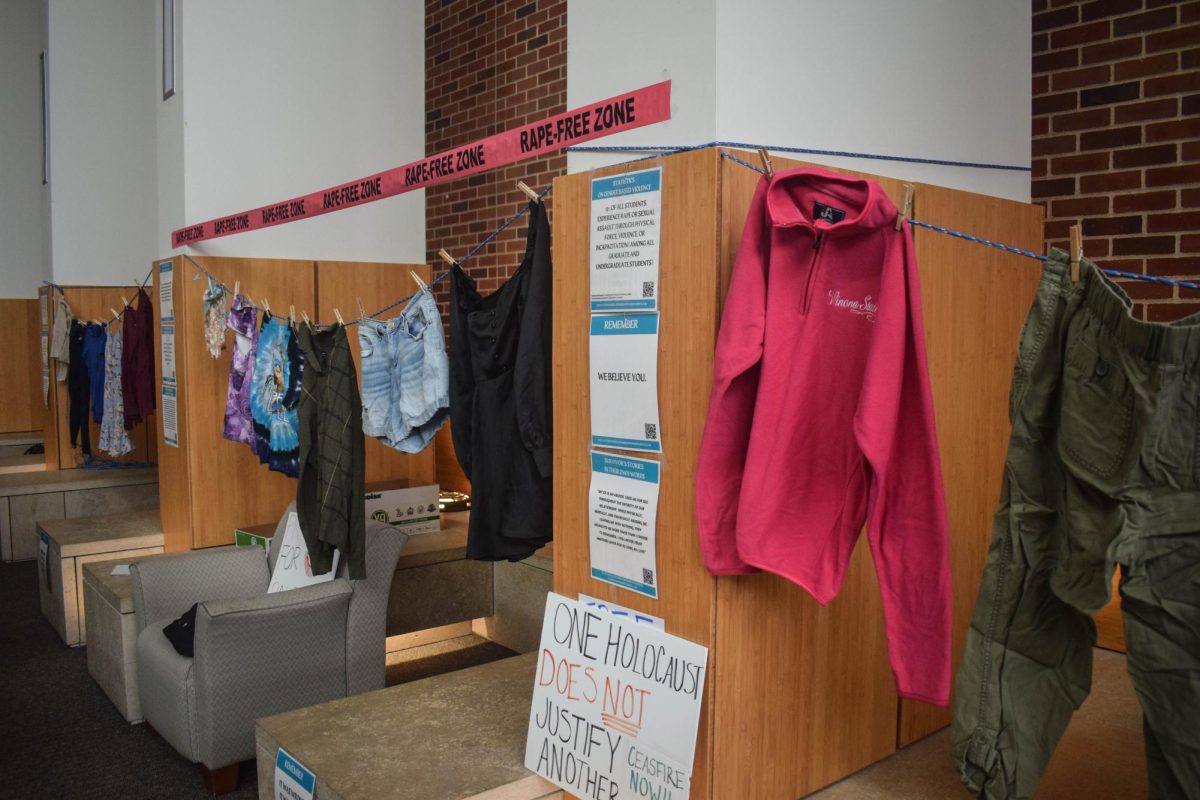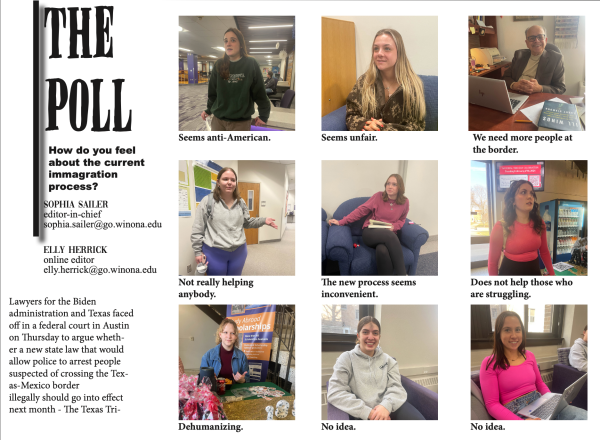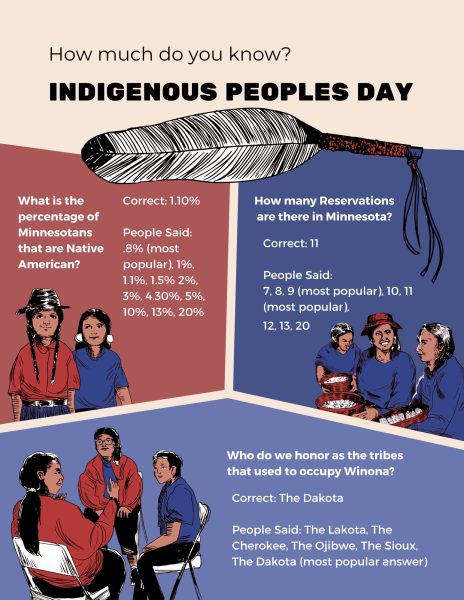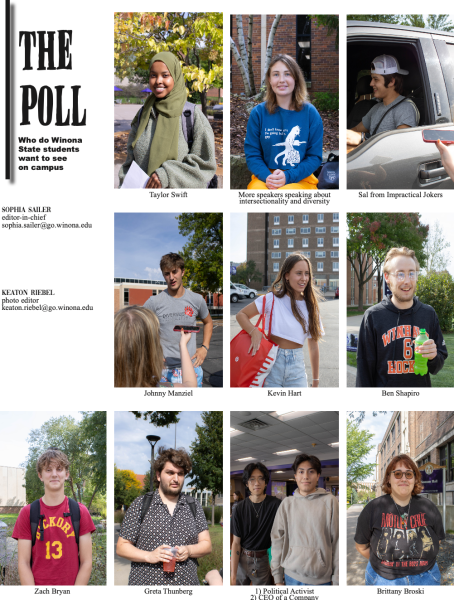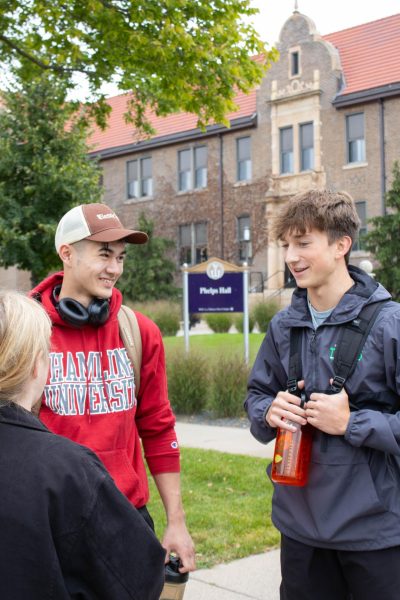An open letter to the Winona State community
September 13, 2017
Last week President Trump and his administration announced that they would be ending the Deferred Action for Childhood Arrivals (DACA) program. This program afforded 800,000 undocumented immigrants nationwide – and more than 6,000 in the State of Minnesota – the opportunity to attend college, work and make a living. On average, Dreamers (another name for DACA recipients) entered this country when they were six and a half years old; so for many of these 800,000, the United States is the only country they’ve ever known. Unfortunately, ending this program will jeopardize the lives and welfare of 800,000 individuals who entered this country through no fault of their own. I would argue that we, as a Winona State community, should come together to support these students across Minnesota and the United States who have used DACA to attain an education, advance our society and bolster our economy.
According to a 2016 survey from the Institute on Taxation and Economic Policy (ITEP), DACA enrollment allowed 60% of respondents to access educational opportunities that previously had been unavailable to them. More recently, it has been estimated that DACA has allowed more than 70 percent of recipients to pursue a bachelor’s degree. In any case, the DACA program has not only benefited its recipients; this program has also served our economy. With these opportunities to excel, Dreamers have provided stability to many state and local economies. ITEP found that continuing the DACA program and accepting all eligible applicants would increase estimated state and local revenue by $425 million. Conversely, the CATO institute estimated that ending DACA may cost the federal government nearly $280 billion in lost tax revenue. This is due to the fact that Dreamers are required to pay taxes but are not eligible for federal welfare. Moreover, the Center for American Progress (CAP) found that 90 percent of Dreamers over the age of 25 are currently employed, earning an average annual income of $37,000. This is all to say that Dreamers should be applauded and heralded as productive members of our communities.
Prior to the enactment of DACA under the Obama administration, Congress had considered legislation that would have protected young undocumented individuals. However, this legislation, which has been around since 2001, has never had quite enough political support to become law. In 2010 the DREAM Act passed the House and mustered a majority of votes in the Senate, but failed to overcome the 60-vote threshold. Yet while the current political climate may not lend itself to bipartisan cooperation on many issues – broad immigration reform included – there does appear to be space for congressional action to protect DACA recipients.
Members of both parties, including Speaker of the House Paul Ryan (R-WI) have called for legislative action on the DREAM Act. In the Senate, Senator Lindsey Graham (R-SC) and Senator Dick Durbin (D-IL) have reintroduced the latest version of this bipartisan legislation, and both of our Minnesota Senators, Al Franken (D) and Amy Klobuchar (D), have come out in support of the bill. In the House, companion legislation has been introduced by Rep. Lucille Roybal-Allard (D-CA) and Rep. Ileana Ros-Lehtinen (R-FL). Of the Minnesota representatives, Rep. Keith Ellison (D-MN-5), Rep. Betty McCollum (D-MN-4), Rep. Tim Walz (D-MN-1), and Rep. Rick Nolan (D-MN-8) have cosponsored this legislation and Rep. Collin Peterson (R-MN-7) has expressed some support for congressional action on the DREAM Act and frustration over President Trump’s decision to rescind DACA. However, Minnesota Representatives Jason Lewis, Erik Paulsen, Tom Emmer, and Collin Peterson have not yet taken a public position.
As students, and as the Winona State community, we benefit from the perspectives and knowledge these students bring to our campus. As a state, we benefit from these young and inspiring individuals’ work ethic and dedication to advancing society. I will continue to use my platform as a student leader to advocate for the marginalized, and I call upon our Minnesota congressional delegation to take action and help pass the DREAM Act. If you feel, as I do, that Dreamers should be protected and elevated as successful members of our community and the state of Minnesota, I urge you to call your representatives, especially those that have yet to take a position.
Benjamin Reimler
Winona State University Student Senate President














